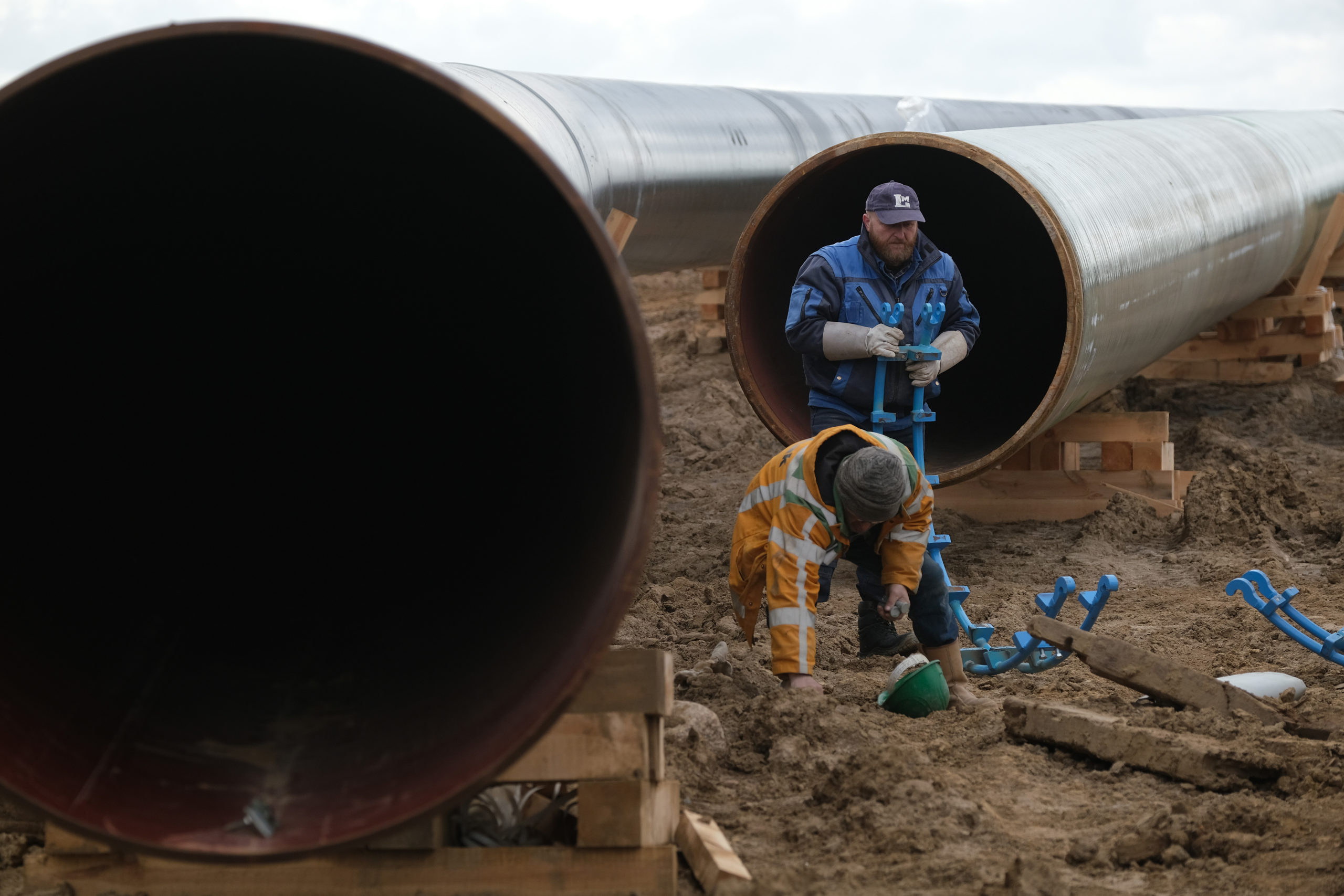The Trump administrations escalating sanctions threats against Europe over Russian gas ties are threatening to blow back against U.S. energy companies.
The White House and congressional Republicans have been aiming increasing amounts of sanctions legislation at companies in Germany and other European Union countries — including threats from Senator Ted Cruz against the publicly owned German port of Mukran, a staging area for ships finishing the Russia-backed Nord Stream 2 gas pipeline.
But now theres growing worry that the EU will retaliate against what it considers illegal U.S. extraterritorial sanctions that undermine its sovereignty.
“This is not a way you treat allies and friends. Now, the European Union should show unequivocally that it will not be blackmailed,” said Klaus Ernst, chairman of the German parliaments energy and economic affairs committee. “If diplomacy fails, well need penalty tariffs on fracking gas or even an import ban as a painful countersanction, since the U.S. gas industry seems to be a major driver of the sanctions policy.”
Thats a big potential problem for American liquefied natural gas (LNG) suppliers in Texas, Pennsylvania and elsewhere, who see Europe as a major market.
“Telling Europe they cant buy Iranian oil was an affront, but Europe took it because they had to” — Kevin Book, managing director of energy think tank ClearView
Last year, U.S. LNG made up just 3.5 percent of EU gas consumption, but the blocs declining domestic production — and emphasis on natural gas as a cleaner-burning fuel in the transition from coal to renewables — provides a market opening in the coming decades.
But rather than boost American gas, U.S. threats of “crushing” financial penalties over Nord Stream 2 could backfire.
Kevin Book, managing director of energy think tank ClearView and a member of the Council on Foreign Relations and the U.S. National Petroleum Council, said the latest threats against the pipeline have touched a particular nerve.
“Telling Europe they cant buy Iranian oil was an affront, but Europe took it because they had to,” Book said. “But telling Germany it cant buy Russian gas when theyre already connected and buying Russian gas goes a bit further in their eyes. They see it as their sovereign right to buy whatever molecules they want to buy … Germany looks at this and says, Youre going to sanction us? Well, weve got economic tools too.”
Weaponizing green regulation?
Book said that one way the EU could make life difficult for U.S. LNG suppliers would be to impose a tax based on the carbon emissions associated with imported products.
That could raise the cost of natural gas from West Texas, where venting and flaring of gas is still a huge problem, and favor direct gas pipelines into Europe, which cut out the greenhouse gas emissions associated with shipping LNG in tankers.
The EU is also considering adopting tough methane emission standards for oil, coal and gas that could be costly for global suppliers.
An August draft of the EUs upcoming methane strategy obtained by POLITICO says that “the EU will consider enforcing an effective stop of all routine venting and flaring in the EU energy sector by 2025” and reach out to international suppliers to encourage alignment to its stricter standards. A final document is expected later this year.
As natural gas becomes a tool in the geopolitical tug-of-war between the United States and Russia, more European countries are looking to still-nascent hydrogen fuel technology as an escape hatch, said Nick Tsafos, senior fellow with the Energy Security and Climate Change Program at the Center for Strategic and International Studies.
“If youre standing in Europe and looking at gas and LNG, its political,” Tsafos said. “On one hand its Russia and the U.S. squeezing. Then theres the question of methane. Its a headache. Some countries want to get out of gas as quickly as possible and move more toward hydrogen.”
In July, the EU released a hydrogen strategy envisioning the futuristic fuel gradually supplanting natural gas — with the transactions being denominated in euros, not dollars, something that could blunt the effect of U.S. sanctions.
Sanctions tit-for-tat?
For now, the pressure from Washington is growing.
A State Department spokesperson said the Trump administration has given Europe ample time to disentangle itself from businesses that could run afoul of sanctions. They pointed to a July 15 press conference where Secretary of State Mike Pompeo told reporters that changes to U.S. sanctions guidance “puts investments or other activities that are related to Nord Stream 2 at risk of U.S. sanctions.”
“Its a clear warning to companies that aiding and abetting Russias malign influence projects will not be tolerated,” Pompeo said at the time. “Get out now, or risk the consequences.”
But the fact that the State Department issued a warning doesnt change that going after European companies is a serious upending of previous norms when it comes to a region that had been considered an important ally, said a senior executive at one U.S. LNG company.
Some countries are looking to get out of the U.S. financial system altogether to avoid sanctions.
“This had previously been a red line,” the executive said of sanctions sweeping up European companies. “It absolutely does increase tensions, primarily between the United States and Germany, but also the U.S. and EU writ large.”
At an August 12 diplomatic meRead More – Source
[contf]
[contfnew]

politico
[contfnewc]
[contfnewc]























































